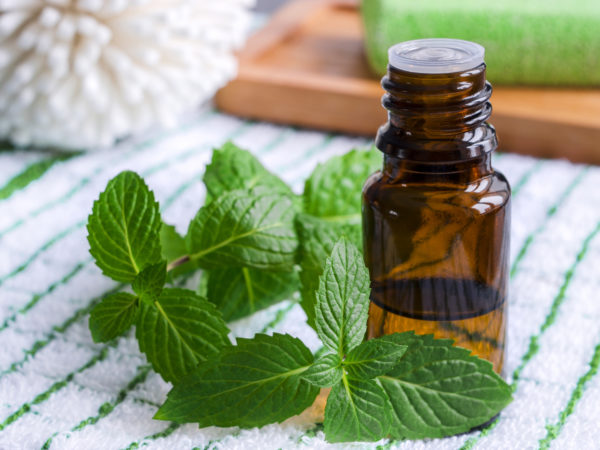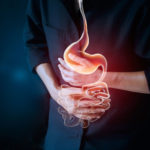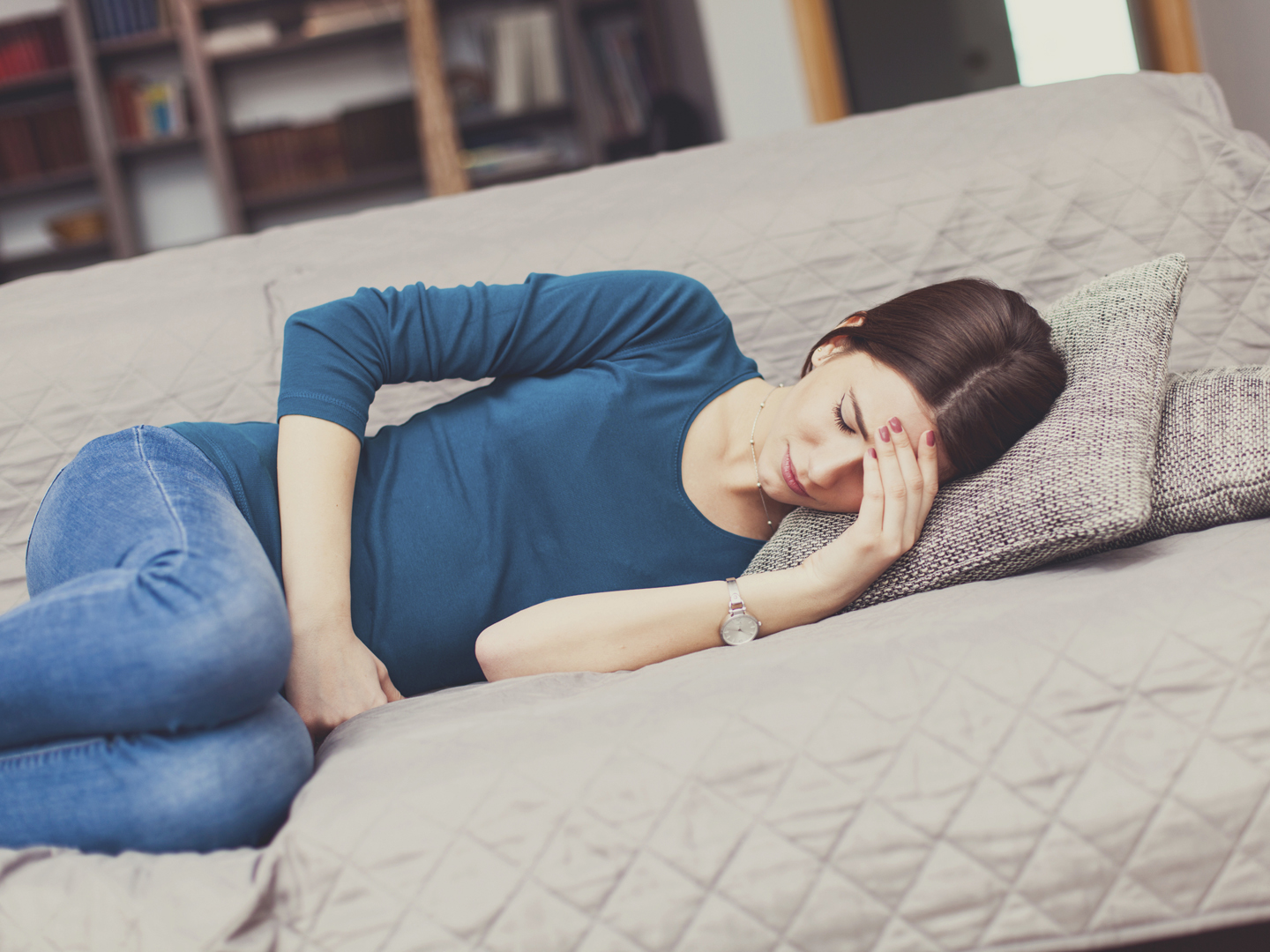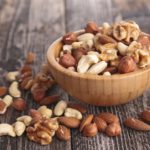Irritable Bowel Syndrome (IBS)

What is irritable bowel syndrome?
Once called “spastic colon,” irritable bowel syndrome, commonly known as IBS, is a common disorder that involves the entire digestive tract. Studies estimate its prevalence in the United States at 10 to 20 percent of the population; worldwide, the prevalence differs from country to country. Don’t confuse IBS with IBD (inflammatory bowel disease), which includes Crohn’s disease and ulcerative colitis.
What are IBS symptoms?
IBS usually begins to manifest as early as the teens and 20’s. Although they vary from person to person and frequently change over time, IBS symptoms can include any combination of constipation, diarrhea, gas, bloating, abdominal pain or discomfort, fatigue, and headaches. Because these symptoms occur in many different disorders, other possible causes may have to be ruled out before IBS can be diagnosed.
What are the causes of irritable bowel syndrome?
There is no known cause for IBS, and it is generally considered a “functional disorder” meaning it interferes with the body’s normal activities by influencing the sensitivity of a system, or by impairing the way the brain controls and regulates that system. IBS is believed to stem from a glitch in nervous system regulation of the normal functioning of the lower digestive tract. The digestive tract appears to become very sensitive to even minor stimuli, and people with IBS often experience extreme discomfort from simple gas or normal muscle contractions. While there’s nothing wrong with the structure of the intestine itself, in some patients there may be a problem with its muscle movement. The intestinal walls are lined with layers of muscle that normally move digested material through the digestive tract toward the rectum, but in IBS, these contractions may be stronger, and last longer, than is optimal, leading to bloating, gas and diarrhea. Conversely, the opposite may occur – food passage becomes slower, and stools become hard and dry. Not everyone with IBS will have these abnormal contractions, and this abnormal activity does not always coincide with changes in bowel habits.
Inflammation at the microscopic level (as opposed to more severe inflammation characteristic of inflammatory bowel disease) in the lower intestine may also play a role. While they don’t cause IBS, certain foods, emotional factors (anxiety, stress, fear, and depression), and other irritants can trigger and worsen symptoms.
What is the conventional treatment?
Treatment is very individualized. If a particular food appears to be a trigger, it is eliminated from the diet. Likewise, if certain situations are identified that cause stress and flare ups, patients are advised to avoid them. The usual pharmaceutical approach is to prescribe antispasmodic medications, which slow the function of the gastrointestinal tract, but these drugs aren’t very effective and can cause significant side effects. Some doctors also treat IBS with antidepressants and potentially habit-forming tranquilizers.
What therapies does Dr. Weil recommend for IBS?
The symptoms of IBS can be troubling, but it also appears that the condition is being “promoted” by drug company advertising campaigns to instill fear and drive drug sales. “What for many people is a mild functional disorder – requiring little more than reassurance about its benign natural course – is currently being reframed as a serious disease attracting a label and a drug, with all the associated harms and costs,” concluded an article by a Australian researchers called “Selling Sickness: the pharmaceutical industry and disease mongering,” published in the April, 2002, issue of the BritishMedical Journal.
Dr. Weil believes there is merit in this view and that, in many cases, digestive discomforts that might be diagnosed as IBS will resolve on their own within a few days.
However, if the diarrhea, stomach pain or other symptoms have become chronic – meaning that they have persisted for more than four to six weeks, or if they have become steadily worse in character – it may be advisable to consult with your primary health care provider. Note that reducing the stress that can bring on irritable bowel syndrome symptoms is key to controlling this disorder. There are also numerous natural IBS remedies including lifestyle and dietary changes that include increasing your intake of fiber and avoiding foods that trigger symptoms.
Lifestyle Changes
-
- Learn to reduce stress. Try the relaxing breath, biofeedback, yoga or meditation.
- Hypnosis. Several scientific studies have shown that hypnosis can help ease IBS symptoms. In a British study published in 2003, almost 75 percent of the IBS patients who attended 12 weekly hypnotherapy sessions and received an audiotape for home use reported an improvement in their symptoms. Of this group, 81 percent said that the benefits lasted for more than five years, and most of them continued to practice self-hypnosis.You can get a referral to a certified professional in your area from the American Society of Clinical Hypnosis.
- Cognitive behavioral therapy. This form of psychotherapy can help you see how self-defeating thoughts and actions contribute to stress and subsequently to IBS symptoms. Learning coping skills can reduce IBS symptoms.
- Acupuncture. This traditional therapy seems to help relieve bloating.
- Exercise. Physical activity helps to maintain bowel regularity and reduce stress.
- Low FODMAP diet. This is not a weight-loss diet, raher an eating plan designed for people with irritable bowel syndrome (IBS) and is sometimes recommended for treatment for other inflammatory bowel diseases.
Nutrition and Supplements For IBS
- Avoid trigger foods. Keep a diary that will help you identify foods that set off your irritable bowel syndrome symptoms. You may have to track what you eat for a month or more to determine which foods are responsible. A study published in July 2005 in the American Journal of Gastroenterology showed that IBS patients are more sensitive to wheat, beef, pork, lamb and soybeans. Beans and raw fruits and vegetables are frequent triggers of gas and bloating.
- Increase your fiber intake. Eat lots of whole grains and cooked vegetables and fruits. Sprinkle a tablespoon of freshly ground flax seeds on cereals, soups and/or salads daily. If you can’t get enough fiber through your diet, use Metamucil or an equivalent fiber supplement. A high fiber diet can ease constipation (but may worsen diarrhea).
- Avoid stimulants. Caffeine, tobacco and other stimulants can irritate the bowels and worsen diarrhea. Decaffeinated coffee can have the same effects.
- Avoid dairy foods. Eliminating milk and milk products, including anything that contains casein, has helped many people.
- Don’t overeat. Too much food in a single meal can set off IBS symptoms; instead, opt for small, frequent meals when possible.
- Avoid certain non-nutritive sweeteners. Sorbitol and xylitol can exacerbate diarrhea in people with IBS.
- Avoid carageenan. This commonfood additive is used as a thickener and emulsifier in ice cream, yogurt, cottage cheese and other processed food products, including soy milk. It has been linked to intestinal ulcerations in animal studies.
- Try probiotics. These products contain “friendly” bacteria that can stabilize the digestive tract; you can find milk-free brands (such as Culturelle) in health-food stores. Take probiotics with meals as a gentle, natural IBS remedy.
- Take carob powder for diarrhea. Used occasionally, a tablespoonful of carob powder (mixed with applesauce and honey) can soothe irritated intestines.
- Take peppermint oil. Enteric-coated capsules taken 15 to 30 minutes before meals led to significant improvement in IBS symptoms among participants in a Chinese study. Peppermint oil can reduce muscle spasm or cramping and is best used for abdominal pain and discomfort. Take one or two capsules three times a day between meals.
- Try turmeric. A standardized extract of this spice reduced IBS symptoms by 50 percent or more in a pilot study published in 2004. Turmeric may help by reducing inflammation and abnormal muscle contractions in the bowel. I suggest taking 300 to 400 mg to three times a day.
- Try slippery elm. Obtained from the inner bark of the red elm tree (Ulmus rubra), slippery elm powder can heal irritated digestive tract tissues. Prepare a soothing gruel by combining one teaspoon of the powder with one teaspoon of sugar and two cups of boiling water. Stir well. Flavor with cinnamon and drink one or two cups twice a day.













